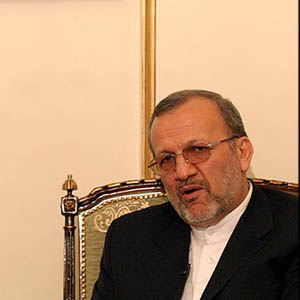Fundaments of Diplomatic Maneuver
Hassan Beheshtipour, international affairs analyst has commented on the strength and weakness of Iran’s diplomatic apparatus

 To talk about the efficiency of an administration’s diplomacy, four factors should be considered
To talk about the efficiency of an administration’s diplomacy, four factors should be considered: One. The efficiency of diplomacy policymakers and handlers
An efficient diplomacy turns the enemies into neutral countries and neutral countries into friends. Our international strategy should not create more enemies for us. This is a fundamental objective followed by all countries. If taken seriously, it will bring further success for us.
Two. Adjusting ideals to international laws.
Today, in terms of diplomatic orientation there are three type of countries in the world: idealist, pragmatist and realist. Our country, particularly in Ahmadinejad’s term, falls under the first category. In these countries, a successful administration is one that creates less friction between its ideals and international norms, and turns the ideals into an international behavior. This did not happen in Mr. Ahmadinejad’s term unfortunately.
Three. Grounding foreign diplomacy on national interests.
Our foreign diplomacy has never had a feasible plan in post-revolution years. Iran has never thought of means to reach its goals, and that’s not only a problem of Ahmadinejad’s administration. For example, ’dignity, wisdom and expediency’ are the fundaments of Iran’s international diplomacy, but they should be defined based on international circumstances. Iran should be respected among both states and nations. On wisdom, we should be aware of international relations and provide correct solutions. Our nuclear program was handled well and Mr. Ahmadinejad had a substantial role in that case. Expediency calls for fulfilling national interests.
Four. Providence in foreign diplomacy.
To be able to have a clear picture of the current circumstances, we should use those who are expert and experience. In the early years of revolution, an individual’s faith in the Islamic movement was the only criteria. But thirty years after the revolution, expertise is the most essential factor.
The conditions of having a realistic analysis.
In assessing the record of the government in foreign diplomacy, we should at first have a complete picture of its performance. A cursory look tells us that Ahmadinejad’s administration has succeeded in improving ties with African and Latin American states. But severing relations with Western countries is the dark point of Ahmadinejad’s first term. Iran-EU ties are now at the worst condition during the past four year. Unlike Khatami’s defensive strategy, Ahmadinejad has opted for an aggressive style. An efficient diplomacy would find the point of balance between these two.
At times, based on incorrect data and analysis, Ahmadinejad’s diplomatic team has taken hasty stances. The case of Marwa Sherbini and Ahmadinejad’s diatribe against the German government is a good example. How could the German government be accused of a likely plot to murder this Muslim woman? And the question coming to mind is how is it that our remark on such an event is not an instance of intervening in domestic affairs of another country, but others’ comments on Iran’s internal developments are? Such stances have affected Iran-West relations during the past four years.
Such behaviors are basically problematic. We should defend the truth by appropriate means. International laws have been developed by global powers, but it we want to interact with other nations and states, we should treat them just as we want to be treated. Iran’s paradoxical behavior will cause more problems in relations with West.
Let us look at the case of ethnic tensions in Uyghur. The government of Turkey denounces China and supports ethnic Uyghurs because of its pan-Turkist agenda. But Iran should not rush for an anti-Chinese remark just because of the Muslim roots of this group. A rational, non-idealistic policy which may even entail having diplomatic contact with the Chinese government can solve the problem of Muslims in this country and alleviate their plight.
In foreign diplomacy, we should be never affected by our emotions and go for short-term interest. What goes on in diplomatic deals is never reflected in the media. Common denunciations will have a reverse effect if they pass non-diplomatic channels. The most important thing for us is to identify our national interests and know how to advance them at any moment, any place.

